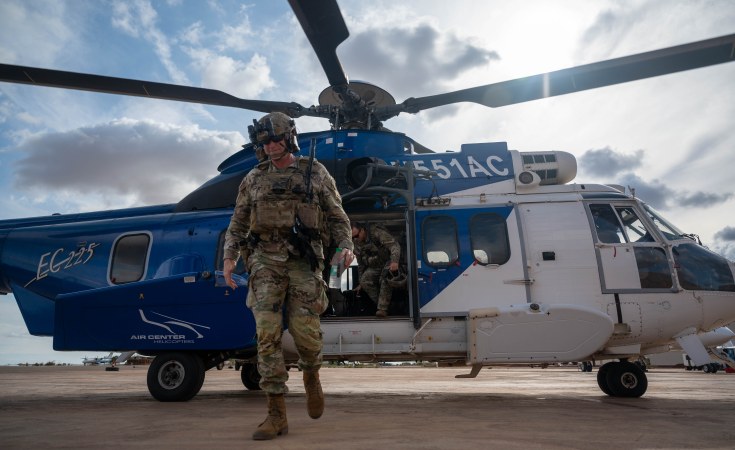The U.S. has completed its withdrawal of military forces and assets from its last military base in Niger, the U.S. Department of Defense and the Ministry of National Defense of the Republic of Niger announced in a joint statement Monday.
The completion marks the end of the United States' counterterrorism mission in the country, even as violent extremism continues to increase across the Sahel region.
Only a "handful" of American military personnel are still in Niger, a U.S. defense official told VOA following the announcement. Those who remain are working out of the embassy, including the top American officer overseeing the effort, Maj. Gen. Kenneth Ekman.
"It's not mission complete yet because of a few administrative tasks, but for practical purposes, both bases are now in Nigerien hands," a U.S. defense official told VOA on Monday following the announcement.
The effort formally began on May 19, when U.S. and Nigerien leaders agreed to a phased withdrawal of American forces from Niger after being in the country for more than a decade.
Fight against radical Islam
American forces were deployed in Niger to help local militaries combat Islamist terrorists in the Sahel. At the time, officials set a mid-September deadline for the withdrawal's completion.
The U.S. military base in Niamey, known as Air Base 101, was turned over to Niger forces in July. Air Base 201 in Agadez was handed over to Nigerien forces on Monday.
"The effective cooperation and communication between the U.S. and Nigerien armed forces ensured that this turnover was finished ahead of schedule and without complications," the U.S. and Niger militaries said in the joint statement.
The U.S. had used the two military bases to monitor various terror groups, including Islamic State and al-Qaida. Air Base 201 in Agadez cost the U.S. $110 million to build, and the U.S. began its drone operations there in 2019.
Niger's natural resources have increased its importance to global powers, and its location had provided the U.S. with the ability to conduct counterterror operations throughout much of West Africa.
Countries in the region, including Niger, Mali, Nigeria and Burkina Faso, have seen an expansive rise in jihadi movements.
According to the Global Terrorism Index, an annual report covering terrorist incidents worldwide, more than half of the deaths caused by terrorism last year were in the Sahel.
Niger's neighbor, Burkina Faso, suffered the most, with 1,907 fatalities from terrorism in 2023.
U.S. officials have acknowledged the loss of the two bases in Niger is a blow to its counterterrorism efforts and the broader security situation in the Sahel.
Unless the U.S. can find another base to use in West Africa, counterterror drones will likely have to spend most of their fuel supply flying thousands of kilometers from U.S. bases in Italy or Djibouti, severely limiting their time over the targets and their ability to gather intelligence.
Discussions are underway with other West African nations, but the talks are still in the very early stages, according to senior U.S. defense officials who spoke to reporters about the sensitive national security efforts on the condition of anonymity.
Coup forced withdrawal
Tensions between the U.S. and Niger began in 2023 when Niger's military junta removed the democratically elected president from power.
After months of delay, the Biden administration formally declared in October that the military takeover in Niger was a coup, a determination that prevented Niger from receiving a significant amount of U.S. military and foreign assistance.
In March, after tense meetings between U.S. representatives and Niger's ruling military council, known as the CNSP, the junta called the U.S. military presence illegal and announced it was ending an agreement that allowed American forces to be based in the country.
During that meeting, the U.S. and Niger fundamentally disagreed about Niger's desire to supply Iran with uranium and work more closely with Russian military forces.


